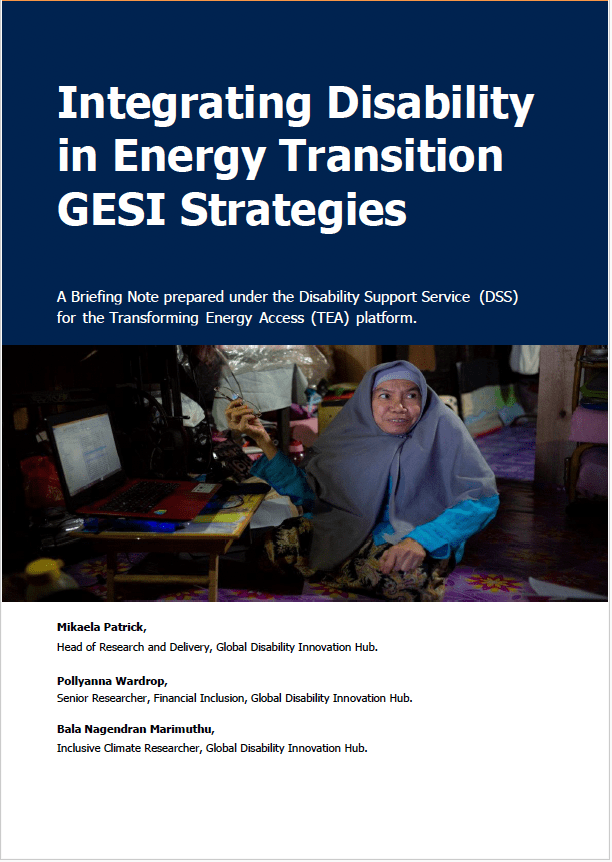Opportunities for Disability-inclusive Energy Access
Globally, 1 in 6 people experience disability (16%), 80% of whom live in Low- and Middle-Income Countries (LMICs). Disability occurs when people with impairments lose the opportunity for equal participation in society because of social and environmental barriers. In the context of climate change, disability can be a cause and consequence of energy poverty, as households of people with disabilities in LMICs are commonly larger, poorer, and in rural areas, where they may require more heating or cooling.
This White Paper titled ‘Opportunities for Disability-inclusive Energy Access’ underscores the need for inclusive energy transition measures to prevent socio-economic exclusion and discrimination, particularly among people with disabilities. This also outlines opportunities for powering assistive technology with clean energy and creating accessible clean energy solutions across eight sectors, including 1) home appliances and information and communication technologies (ICTs); 2) built environment and cities; 3) transportation; 4) healthcare; 5) education; 6) green jobs; 7) humanitarian sector and reconstruction; and 8) energy infrastructure.
This will serve as a reference for energy access innovators, practitioners, and policymakers to identify potential entry points for their contribution to disability-inclusive energy transition.
Integrating Disability in Energy Transition GESI Strategies
Disability is diverse, encompassing physical, sensory, and intellectual disabilities. Likewise, the experiences of people with disabilities—and the barriers they encounter when trying to access or benefit from material, financial, or social opportunities—vary greatly. Just as diverse are the ways in which these barriers can be removed. Hence, an explicit focus on disability is key to delivering an inclusive energy transition that leaves no one behind.
This Briefing Note sets the context, rationale, and recommendations for strategically integrating disability inclusion and accessibility in energy transition, Gender Equality, and Social Inclusion (GESI) programming and delivery. Particularly, this frames a Gender Equality, Disability, and Social Inclusion (GEDSI) approach for the Transforming Energy Access (TEA) platform and partners and presents eleven recommendations for action.

